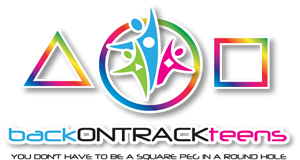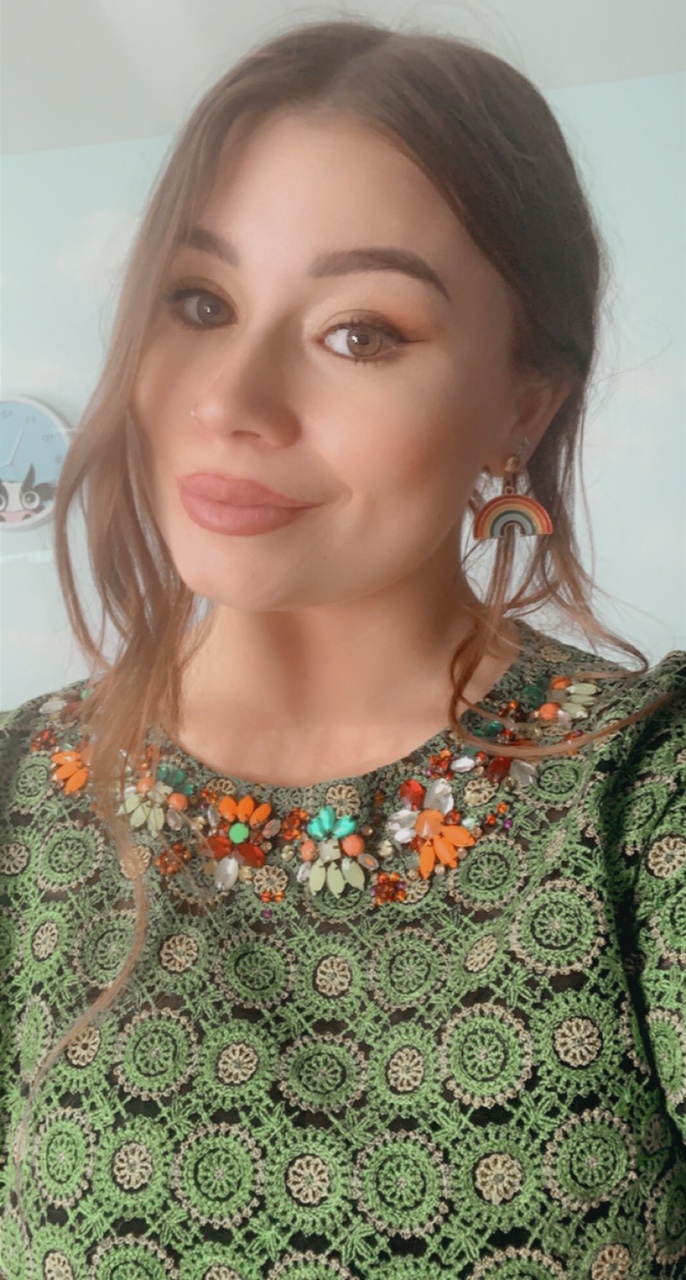
03 Oct Tegan’s story: If you’re typically straight you don’t say, ‘Hey mum, just so you know, I like men’
Hey – thanks for having us on your screen. Welcome to the Back on Track Teens blog for young people and those young at heart.
You’ve loaded a blog article that’s part of a mini-series about gender and sexual identity*. The mini-series shares 11 wonderful and inspiring stories from young people who identify as LGBTQ+. Feel free to read on but you may want to pause and have a quick scan of the opening article to give a bit of context around the collection of stories and resources available. Please click here to read the first article.
This blog post continues the Back on Track Teens mini-series focusing on sharing information around gender and sexual identity.
The purpose of the mini-series is to elevate and amplify the voices of young people who identify as LGBTQ+. This in turn gives other young people who may be questioning or exploring their sexuality and/or gender identity, an opportunity to learn by sharing their journeys. This article, along with the Spark to Your Success podcast and downloadable eBook provides a bank of resources to help young people and their parents, peers or colleagues access information and gain the support they need to research, reflect and resolve.
“I went to Camp America and met so many women who had similar experiences – it was something I wanted to explore more” – Tegan
In this article, Tegan, who identifies as bisexual, shares a wonderful conversation with Tayshan about coming out (or not). She shares an important Camp America exploration and the importance of bringing more sexual and gender identity awareness into schools so that young people feel supported.
“My friendship group has always been with guys. I got on better with guys and we used to talk about dating and relationships. Since then [around 16 years], going through puberty and understanding who I was, I realised I was probably bisexual.
In 2016, I went to Camp America and met so many women who had similar experiences to me and it was something I wanted to explore more. To speak with friends to understand and gain more knowledge on the subject. It helps to find people who are similar and explore together, you know – a new world, a new view. It makes you feel confident.”
What was it like to ‘come out’?
“It’s not something I felt I needed to do. If you’re typically straight you don’t say, ‘Hey mum, just so you know, I like men.’ That’s not expected, so I don’t feel whoever you prefer should be justified or explained [but] I think there’s a huge amount of pressure and stigma around that conversation that can keep people from discussing their feelings to a certain extent.
I know [my mum] would be accepting so it’s not an issue, but I realise that not everybody has the privilege of having an understanding parent or friends.”
Discussing stereotypes and homophobia
The fear of encountering hostility or having to challenge harmful, outdated mindsets can be a real concern for those sharing their gender and sexual identity with others for the first time. Tegan believes that education and self-belief are incredibly important when it comes to opening the minds of others and living the life that you want to with confidence.
Talking openly about thoughts and feelings and exploring options that often go against constricting binary identities is important. From Tegan’s perspective, many topics nowadays were once considered taboo. But through having open conversations and realising that others have similar thoughts and experiences, she believes that more people can now feel safe and at ease in an open-minded space, discussing the things that are important to them.
“I haven’t received biphobia, possibly because everyone I’ve spoken to has been of a younger generation. It’s important to speak out so that everyone is more knowledgeable. Asking about pronouns is a great way to make someone feel comfortable and accepted. I’m unsure about how my nan would handle my gender identity but certainly staff at work and friends have been great.”
How can sex education be improved in schools?
“At my school, we educate younger year groups on sexuality and gender. Sixth formers recently put together a video to highlight reviews and opinions and make it a more talked about topic. The response has been amazing. It’s a powerful thing what young people are doing and good for the sixth formers to be involved in an active change for the whole school.
I carry my rainbow bag and LGBTQ+ flag and students often come up and thank me, saying it makes them feel so much more comfortable.”
In her conversation, Tegan notes that it’s only in recent years that being LGBTQ+ has started to become openly discussed in schools. She believes that conversations are developing and society is becoming more accepting of everyone outside of the standard binary narrative.
What resources are out there to help people learn more?
“The charity MIND has a section on its website about sexuality, gender and mental health.
Social media has pros and cons, so it’s important to create a positive and safe space. You don’t have to follow people that make you feel bad about yourself. I’ve personally found lots of helpful influences from following positive pages, mindful quotes and hashtags for teachers to use in the classroom when promoting sexuality and gender.
A few transgender TikTok accounts are quite eye opening to see what they go through and their experience – and they are incredibly happy to share. It’s informative. I’ve signed up to a free text service and every so often receive a message of positivity, such as ‘your mental health matters’, ‘you are important’ or ‘you are loved.’”
What advice would Tegan offer to parents?
“In my school we have some parents who come to us for support because they aren’t sure who to turn to. It can equally be as challenging for the young person to see their parents go through uncertainty. Everybody wants to understand and help.”
Tegan suggests consulting charities like NSPCC who promote a lot for the LGBTQ+ community. She says they are easily accessible online and through the phone and people can talk anonymously.
“We suggest to students to consider iconic figures from their parents’ generation, such as Elton John. JoJo Siwa is a young person who’s spoken to the world through social media and it’s incredible for people to witness and get advice from those they can look up to.”
Many people who are parents or guardians may not know anyone personally who identifies as part of the LGBTQ+ community (that they know of!). Tegan believes that it’s good for parents and young people alike to see celebrities or role models in the public eye who are out and are comfortable with who they are.
What advice would Tegan give to her younger self if she got the chance?
“Just to know that as long as I’m OK with myself it doesn’t matter what other people think. It’s not something that happens overnight but everything does happen for a reason, and you will be OK – people will have your back.
I think the most important thing is to learn about yourself first and have all the self-love possible because the only person that will always be there for you is you. Look after yourself and find a safe space in your mind and with the people around you before you project that to the world. Be accepting of who you are.” Tegan, bisexual.
Sexuality can be fluid and can change over time. A great way to reflect and work through your own thoughts and feelings as you learn more and understand yourself is to journal, as Tegan chooses to do.
Listen to Tegan's story
Choose the life you want to lead
Tegan is a big advocate of journals and uses beautiful books to draw and write prompts and positive quotes that make her think.
“Journaling when feeling anxious or slipping a bit really helps me to get my thoughts out onto paper and visual them. Even if you tear them up or bin them afterwards at least you’ve had that release.”
Please feel free to share your own thoughts and stories with us by connecting with our socials below and listen to the full podcast series.
We are only touching the surface of this vital subject with this mini-series. It’s important to share as many stories as possible to increase awareness and give more people the confidence to talk about sexuality and gender in an open-minded and non-judgemental way.
“If I wait for someone else to validate my existence, it will mean that I’m short-changing myself.” Zanele Muholi
Thanks for reading…
Creating the gender and sexual identity mini-series has been an incredible experience for the Back on Track Teens team.
- I encourage you to go ahead and download our free eBook, which brings the interviews together with a huge collection of information, resources and inspiration.
- Subscribe to the Spark to Your Success podcast here.
- Access insightful stories, helpful exercises and more resources on our blog.
- Refer to the Back on Track Teens LGBTQ+ glossary here.
- Order ‘The Spark to Your Success – Helping Teens Build Resilience’ here.
- Order ‘The Spark to Your Success – Mindset Magic for Teens’ here.
Are you a parent or caregiver of a young person who may be experiencing challenges around gender and/or sexual identity? Book a session with TeeJay Dowe
Work at a school or organisation and want to know more? Book an awareness training session
*The blog articles capture real stories and the topic of conversation is frank. Its purpose is to elevate the voices of people within the LGBTQ+ community, answer questions, provide resources, and offer support.



No Comments